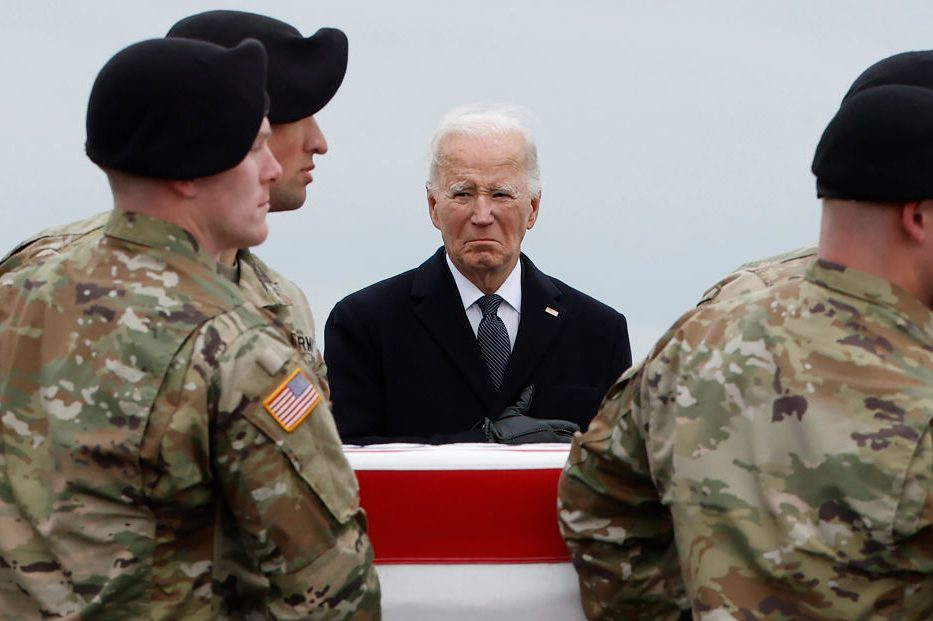“Always mystify, mislead, and surprise the enemy,” said Sun Tzu. President Joe Biden’s administration prefers the opposite approach. America’s commander-in-chief spent much of the last week warning America’s antagonists in the Middle East that the US would respond to the the killing of three of its troops in Jordan last week. And last night the retaliation finally began. US forces used some 125 bombs on seven sites in Syria and Iraq that the Pentagon believes are tied to the attacks on Americans in the region.
Iran was not attacked, importantly, even though the White House has directly blamed the Iranian regime for the many attacks against western assets since the war in Gaza began in October. The widespread fear is that America is getting sucked into a regional conflict with a heavily armed that could, given Iran’s close relationship with Russia and China, draw the west into a major global conflict.
Biden, his secretary of state Antony Blinken and his National Security Council seem well aware of this danger, which is why last night strikes were clearly calibrated to be retaliatory and not escalatory. The Iranian regime will struggle to claim it has been attacked, since it is only its covert operations which have been targeted. But the line between retaliation and escalation is a difficult one to draw and Team Biden appears to be suggesting their response is not over.
America is therefore closer to open conflict with Iran than at any stage since the assassination of Qasem Soleimani in 2020. Both Washington and Tehran are now issuing the same message: we don’t want war, but we are prepared to fight it. Biden’s actions must inevitably be seen through the lens of his re-election effort. Polls suggest that national security is a growing concern for voters, since 9/11, and that is a win for the seemingly inevitable Republican nominee. Donald Trump has made Biden’s inability to contain Iran and Russia a theme of this campaign and says now that humanity is on “the brink of world war three.” Biden must be seen to respond and in Washington that means showing American strength — ie firing missiles at targets. But the very predictability of Biden’s response doesn’t necessarily make it less dangerous.
In tearing up the Obama-era Iran deal and taking out Soleimani, Trump’s “maximum pressure” policy did appear to keep a lid on Iranian regional activity. It was at times terrifying, but Biden’s more steady and obvious approach has hardly yielded better results The Biden administration, staffed at it is by former Obama officials, has tried to keep that hostile pressure up while at at same time accommodating Iran and unfreezing its funds in Qatar and South Korea. Now, since the horror of October 7 and Israel’s belligerent response, that approach has been shown to be flawed. Iran’s regional influence has been reawakened and the regime’s implacably opposition to the “Great Satan” is as great as ever. Will these latest US strikes force Iran to rein in the violence of its proxies? That seems unlikely. America’s ability to exert its will on the region appears to be diminishing.
This article was originally published on The Spectator’s UK website.





















